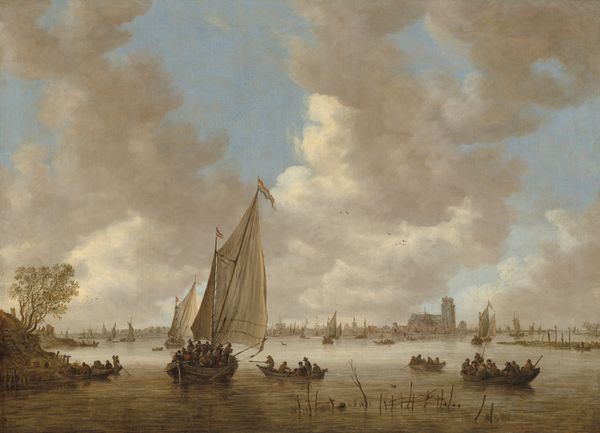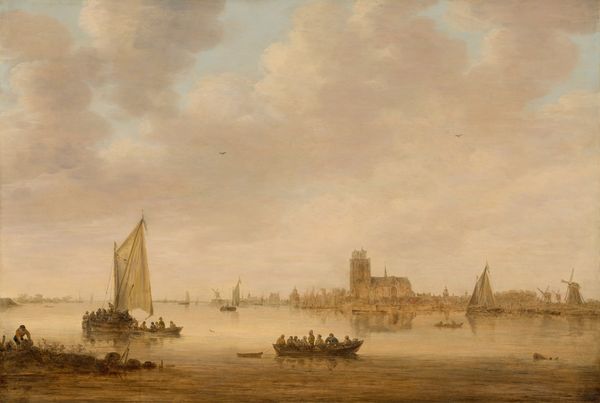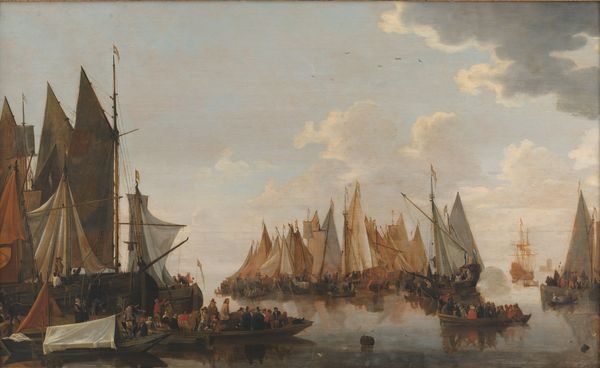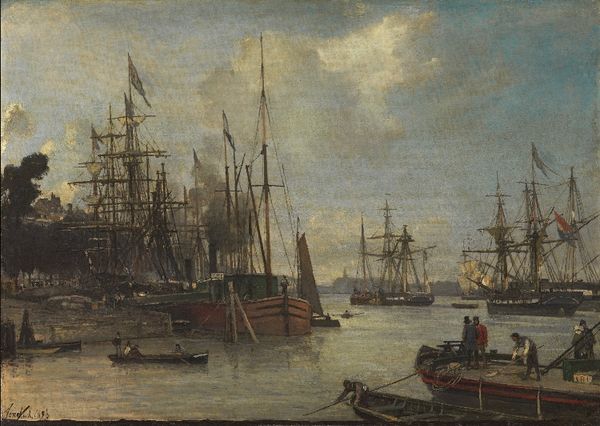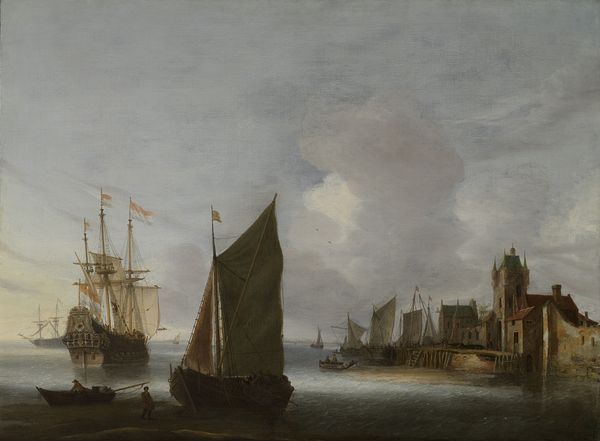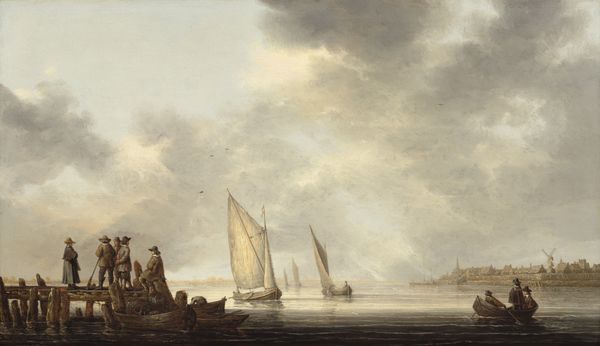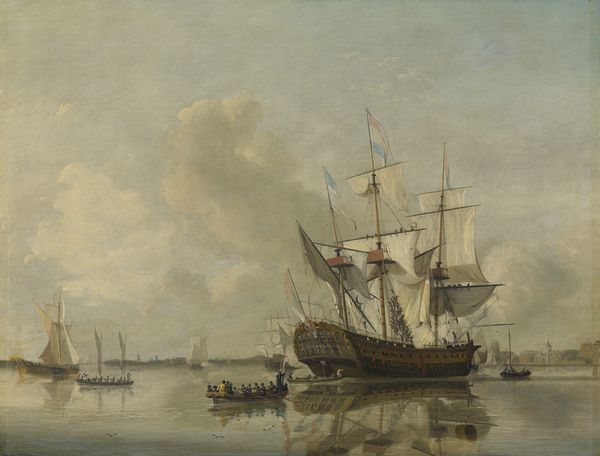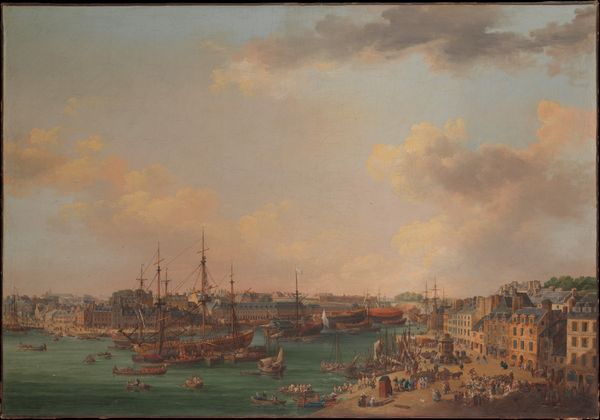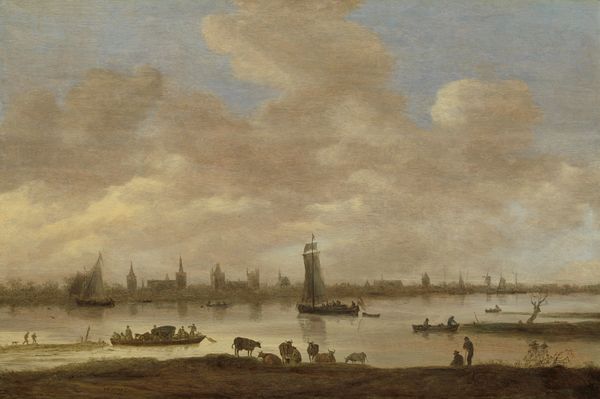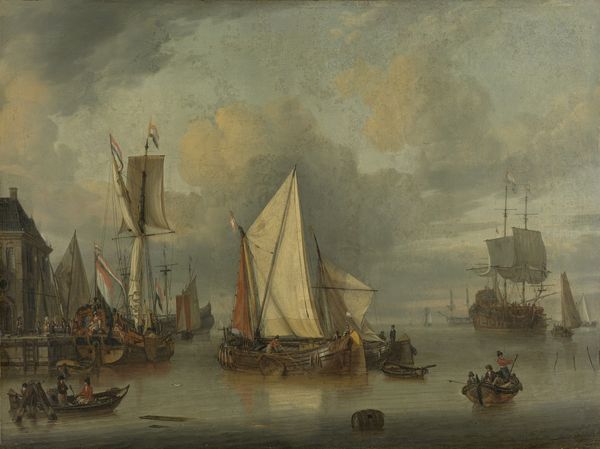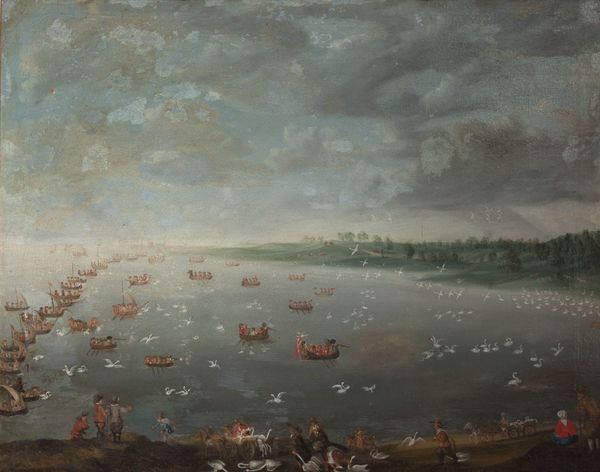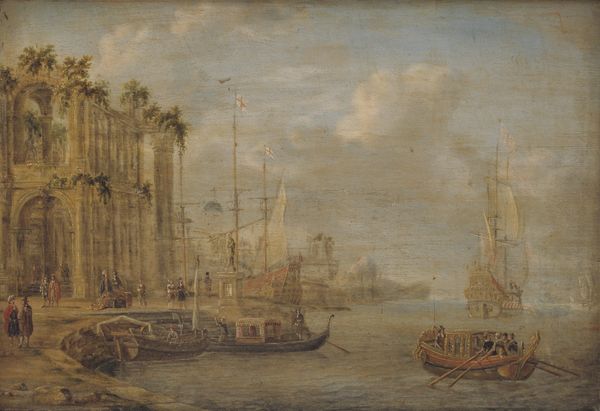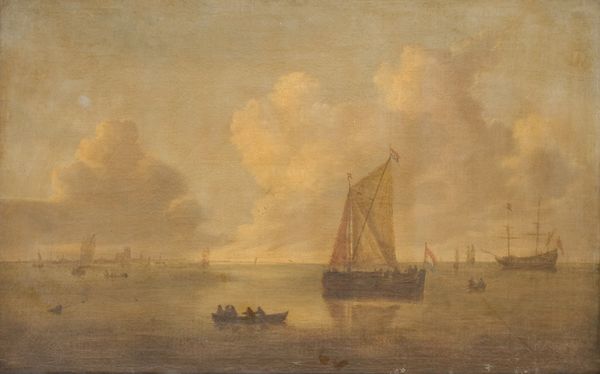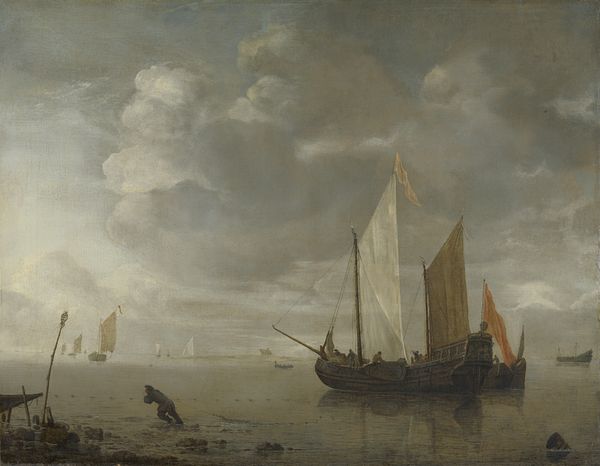
painting, oil-paint
#
baroque
#
painting
#
oil-paint
#
landscape
#
oil painting
#
cityscape
#
genre-painting
#
history-painting
Dimensions: support height 32 cm, support width 52.7 cm, outer size depth 4.6 cm
Copyright: Rijks Museum: Open Domain
Editor: So, this is "The Dutch Defeat at the Blokkersdijk, near Antwerp, 1605," an oil painting made around 1610-1615 by an anonymous artist. It feels quite bleak to me. There's so much sky, and it all seems rather gray and chaotic. What do you see in this piece? Curator: I see a fascinating visualization of power and its discontents. It's vital to remember the context: this is the Eighty Years' War, a struggle for Dutch independence against Spanish rule. While the painting depicts a Dutch defeat, the very act of commemorating it raises questions about how power is perceived and legitimized. Who commissioned this? What narrative were they trying to construct around a loss? Editor: That's interesting; I hadn't thought about the narrative being crafted around a defeat. Why commemorate a failure? Curator: Exactly! It begs the question: who benefits from representing this specific historical moment? Consider the Baroque style – often used to project authority and grandeur. Here, though, the anonymous artist captures chaos. Is this a critique of warfare itself? Are they perhaps subtly questioning the romanticized portrayals of battles often presented by the victors? Editor: It's as if the artist is deliberately downplaying any heroic aspect, highlighting the confusion and loss instead. Curator: Precisely. Furthermore, how does the cityscape in the background, the very thing being fought over, play into notions of national identity and belonging? This battle wasn’t just about territory; it was about defining what it meant to be "Dutch" in the face of imperial aggression. Can a defeat strengthen identity in a way victory could not? Editor: I hadn’t considered that aspect. Viewing the painting as a commentary on identity rather than simply a record of events is a totally different way of seeing it. Thanks for showing me how social context can inform the interpretation of a piece of art. Curator: Absolutely. Never forget to ask "cui bono?" – who benefits? It often unlocks new ways of seeing the past.
Comments
No comments
Be the first to comment and join the conversation on the ultimate creative platform.
